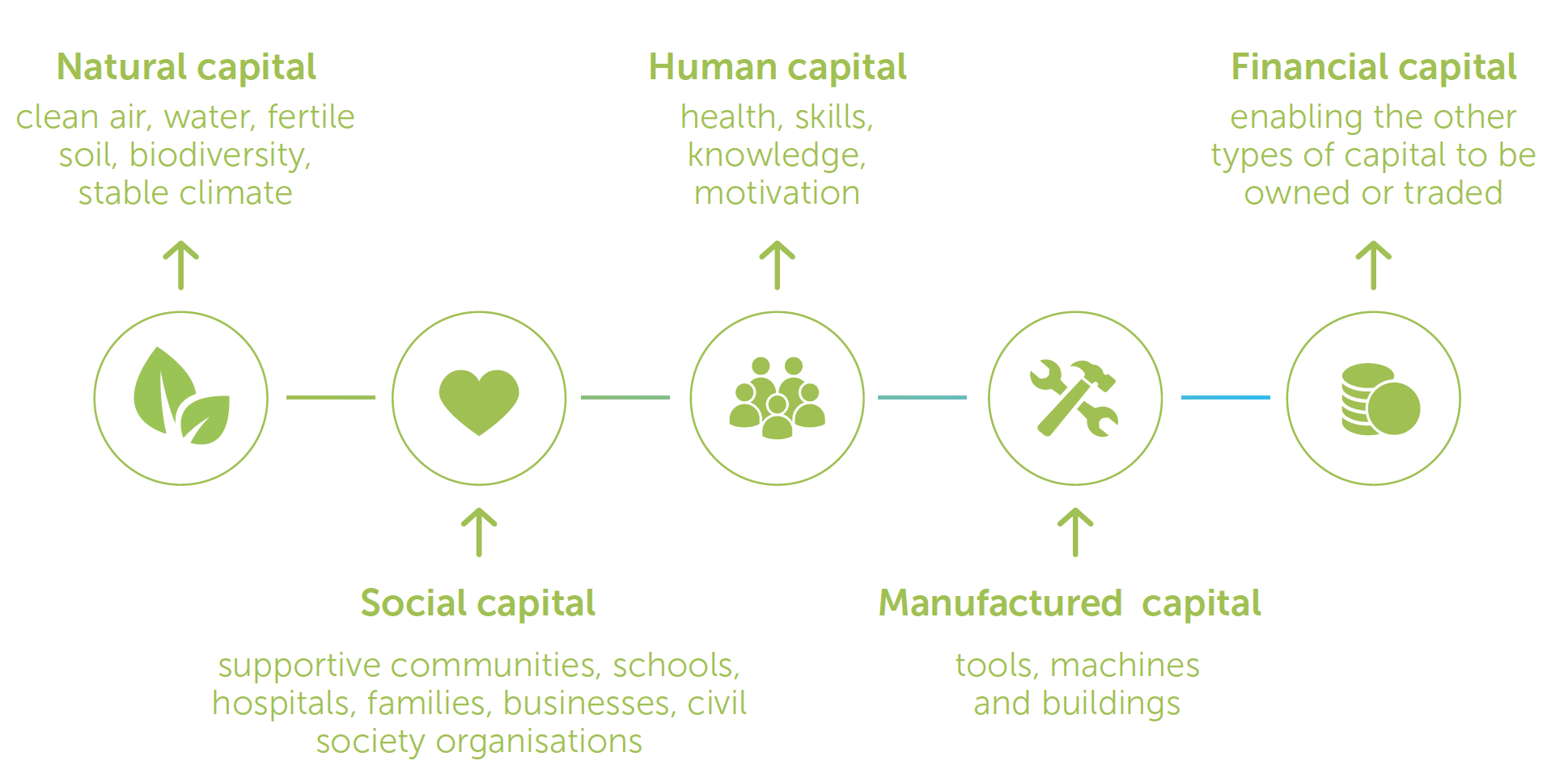The future of Africa is highly dependent on the use and allocation of resources. Economies and livelihoods in Africa are linked to the environment and natural resource use, and how benefits are distributed.
Enabling a sustainable future requires that interventions designed to meet the current needs of one group of people do not adversely affect the ability of other people to meet their own needs, now and in the future. Equally, enabling a sustainable future requires that interventions designed to achieve critical environmental outcomes (such as net-zero carbon emissions or halting biodiversity loss) take account of the people who will be most affected: a just transition. It also requires interventions to build, protect or improve critical networks and institutions that promote economic justice and environmental protection, including advocating for others to do the same.
This means respecting and valuing natural capital, social capital and human capital in the drive to grow economies and understanding and mnaging any trade-offs. It means also recognising that financial capital can and must play a role in supporting people and the environment as economies grow, but has no value in itself.

In 2020, FSD Africa, explored how the concept of ‘sustainable futures’ applies to the way FSD Africa selects and designs its projects. Firstly, FSD Africa targets investments in natural, social and human capital that enable a sustainable future. This includes providing finance for climate mitigation or adaptation or for biodiversity; supporting interventions that address corruption; and training men and women with skills for the future. Secondly, FSD Africa applies a sustainable futures lens to all its projects to identify and mitigate social and environmental risks and to support those left behind.
FSD Africa’s ‘sustainable futures’ efforts are designed to support the entire enabling environment for financial systems in order to reduce inequality and to drive greater equity and fairness for future generations. By pursuing inclusive and sustainable economic growth and access to basic services for all, FSD Africa intends to reduce inequality, enhance social systems and preserve natural care that no-one is left behind.



